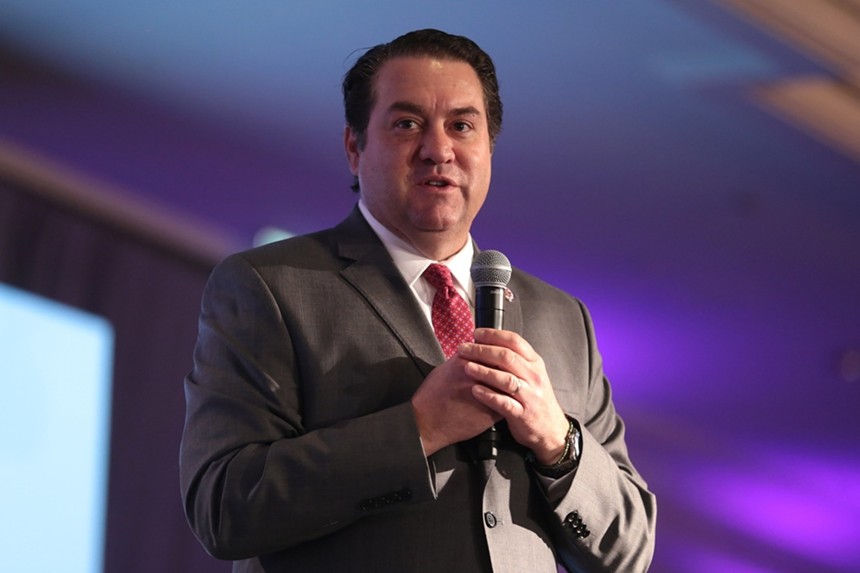Annette Rivers didn’t expect a call from the University of Arizona a few weeks ago. After 20 years living in Tucson and working for the university, the 61-year-old retired earlier this year to Texas.
But she was naturally inclined to answer a call from her former employer.
“Hi, this is Susie calling with the vehicle service department,” said the voice on the other end of the call. “We are calling about your vehicle’s manufacturer’s warranty.”
The same thing happened to John Peake, a 42-year-old Nebraska resident, around the same time — a call from the University of Arizona to his cell phone that still has an Arizona number. The call was an auto warranty scam.
These are two of more than half a billion robocalls placed to Arizona phone numbers so far this year, according to YouMail, an Irvine, California-based spam call-blocking software developer.
In July, the Federal Communications Commission ordered American phone carriers to block millions of illegal extended car warranty robocalls. That action offered some welcome respite from the scammers, but the problem remains worse in Arizona than anywhere else in the country.
A new consumer survey from Transaction Network Services (TNS), a global telecommunications company based near Washington, D.C., found that Arizona is a hot spot for robocall scams. The East Valley’s 480 area code generated 20 million unwanted robocalls in both May and June — more than any other area code in the country.
In fact, four of Arizona’s five area codes found a spot in the top 10 area codes for generating unwanted robocalls in June.
Tucson’s 520 area code was responsible for the fifth-most unwanted calls in June, at more than 7 million, while the West Valley’s 623 area code came in at No. 6 with 6.8 million scam calls. The iconic 602 area code in Phoenix ranked No. 9 with more than 6.5 million bogus robocalls in June.
Only Arizona’s 928 area code, which covers Flagstaff, Prescott, Yuma, and most of rural Arizona, didn’t rank in June. But that area code is home to just 3.5 percent of the state’s population, and even it made a top 10 appearance back in January.
Rounding out the top five were Detroit’s 313, central California’s 209, and Atlanta’s 470 area codes. Also among the 10 biggest culprits were D.C.’s 202, Dallas’s 469, and Denver’s 720.

Why Arizona is a Robocall Hot Spot
In June 2021, Arizona didn’t have a single area code in the top 10, according to TNS data. So, what happened?
There are three reasons why so many robocalls now come from Arizona phone numbers, according to Jim Tyrell, vice president of enterprise product management at TNS.
- Political surveys. Arizona ranked nationally in robocall volume in June for both generating and receiving robocalls. “The largest amount of robocalls we saw were associated with political surveys, which isn’t that surprising given that you recently had your primaries,” Tyrell told Phoenix New Times. “Arizona is a battleground state, and like many others we see, robocalls are used for misinformation campaigns.” One Senate campaign this election cycle asked the FCC for permission to flood American cell phones with unending voicemail messages, The Arizona Republic reported.
- Home buying. The housing market in Phoenix grew exponentially in the past year, feeding a bump in home-buying scam calls. “That isn’t surprising given the market in Phoenix,” Tyrell said. Typically, this type of scam begins with a call from someone claiming to be a real estate broker, offering to buy the victim’s home for cash if the victim can pony up a small administrative fee. “They pay over the phone and never hear back from that bad actor again,” Tyrell said.
- Medicare scams. Medicare and Medicaid scams target the elderly. Arizona saw an uptick in these types of scams during the coronavirus pandemic. “Phoenix is a hot spot for retirees,” Tyrell said. Despite FCC action, only 38 percent of Arizonans reported receiving fewer calls during the pandemic.
Arizonans received more than 80 million unwanted robocalls in June, according to YouMail. The average Arizona resident has received at least 78 scam calls so far this year.
“To the average person, especially with the auto warranty scams, it doesn’t feel like there’s any relief,” Tyrell said.
That’s why Arizona Attorney General Mark Brnovich announced on August 2 that Arizona is joining a nationwide Anti-Robocall Litigation Task Force. The group of 50 attorneys general will investigate and take legal action against the telecommunications companies responsible for bringing the majority of foreign robocalls into the U.S.
"Foreign robocalls have become a threat to our privacy and security, and they need to be stopped," Brnovich said in a prepared statement. "Our bipartisan coalition seeks to end these illegal and unwanted calls and ensure that offenders are held accountable."
In 2020, a federal judge ordered two Paradise Valley residents to stop using their businesses to funnel hundreds of millions of overseas robocalls every month. It was a first-of-its-kind effort by the U.S. Department of Justice to punish telecom carriers for fraud schemes.
Recent belly-up congressional candidate Elijah Norton’s erstwhile auto warranty venture in Scottsdale, CarGuard, has been sued over claims that the business robocalls consumers to try to sell service contracts. His opponent and Republican primary victor David Schweikert called Norton the “Robocall King” and a “scam artist.”
In September, the FCC required voice service providers to block phone traffic from any providers that haven’t filed a detailed robocall mitigation plan with the FCC. Since then, the number of monthly scam robocalls dropped from 2.1 billion to 1.1 billion nationwide.

Nearly 600 Million Robotexts a Month
While robocalls are down, robotexts in Arizona spiked by 1,200 percent in the past year.
In June, Arizonans received 565 million robotexts, according to RoboKiller, a spam-blocking tech company. Like robocalls, these texts use Arizona area codes to trick potential victims into thinking the text is from a legitimate local business.
Spam texts have increased more than tenfold as con artists and identity thieves find alternative ways to steal Americans’ personal information and money, according to the Arizona Public Interest Research Group, a Phoenix-based consumer protection nonprofit.
“The phone companies’ actions appear to be helping, but clearly, incomplete compliance has not solved our national robocall problem,” said Teresa Murray, a consumer watchdog with APIRG. “While robocalls may be ringing in our ears less often, excessive robotexts are now ringing in our fears of being scammed.”
In the first half of 2022, robocall volume dropped 7 percent nationally, while the total number of robocalls is dropping year-over-year. But that still equates to more than 5 billion robocalls every month.
In some instances, bad actors buy legitimate Arizona telephone numbers from small providers and use snowshoe spamming, a technique that involves placing small numbers of robocalls across a large number of telephone numbers.
“They try to avoid detection from analytics companies like us by spreading their scams over lots of different telephone numbers, as we see with those auto warranty scams,” Tyrell said. “They want it to look like a local, residential number. These guys are pretty smart, and it’s been a game of Whac-A-Mole over the last few years.”
Research from APIRG and TNS showed that 80 percent of Arizonans don’t answer calls from unknown numbers.
The solution is increased FCC oversight and implementation of branded calling, Tyrell said.
Branded calling provides the brand name, logo, and call intent to educate the customer about who is calling and why. Verizon, AT&T, and T-Mobile have already rolled out versions of branded calling.
“It’s starting to get some adoption,” Tyrell said. “We’re seeing a good uptick in answer rates and better customer engagement.”
Time will tell if branded calling is the solution to America’s time-worn robocall epidemic.
“Consumers rely on our phones, we pay good money for our phones, but it has become a hassle to use our phones the way we want to – to answer calls and texts,” said Murray of APIRG. “The tales of people whose lives are wrecked by scam calls and texts are gut-wrenching. Illegal robocalls and robotexts need to stop.”











